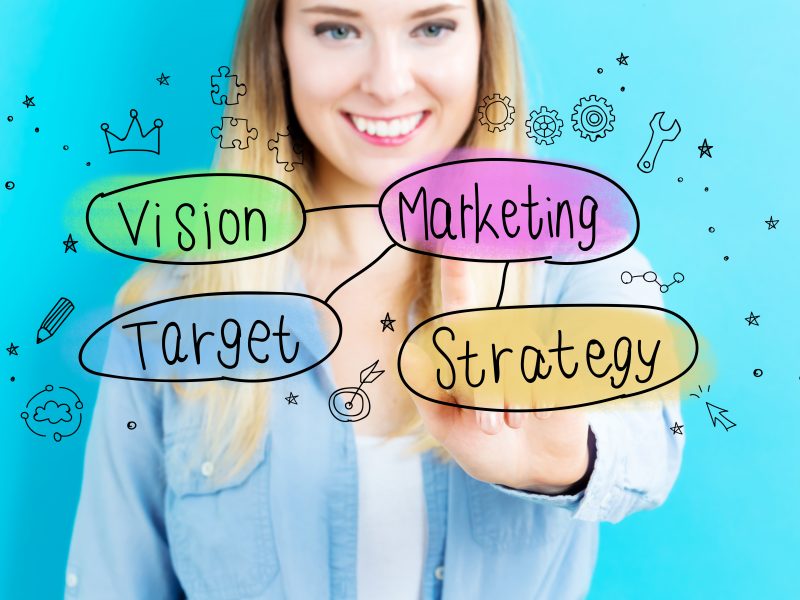Supercharging Your Strategy: Unleashing the Power of AI and Google Digital Marketing Together
In the dynamic landscape of digital marketing, staying ahead requires embracing innovation. Two powerful forces are converging to offer unprecedented opportunities for businesses: Artificial Intelligence (AI) and Google’s robust suite of digital marketing tools. When strategically combined, they create a synergistic effect, enabling marketers to achieve greater efficiency, deeper insights, enhanced personalization, and ultimately, superior results. Let’s delve into how this powerful duo can be leveraged, illustrated with real-world examples.
AI: The Intelligent Engine Driving Google Marketing:
AI isn’t just a buzzword; it’s the underlying technology powering many of Google’s most effective marketing tools. From understanding search intent to automating campaign optimization, AI provides the intelligence needed to navigate the complexities of the digital world.
- Enhanced Audience Targeting with Google Ads: Google Ads leverages AI through features like Lookalike Audiences and Optimized Targeting. Lookalike Audiences use machine learning to identify users with similar characteristics and online behavior to your existing high-value customers, expanding your reach to potentially interested individuals. Optimized Targeting, on the other hand, dynamically adjusts your targeting in real-time to find more converting customers within your defined parameters.
- Real-world Example: An online retailer selling sustainable clothing used Lookalike Audiences based on their past purchasers. Google’s AI identified users who showed similar interests in eco-friendly products and ethical sourcing, leading to a 25% increase in conversion rates from new customers compared to their previous broad targeting.
- Smarter Bidding Strategies in Google Ads: AI-powered Smart Bidding strategies like Target CPA (Cost Per Acquisition), Target ROAS (Return on Ad Spend), and Maximize Conversions analyze historical data and real-time auction signals to automatically adjust bids for each auction, maximizing your chances of achieving your campaign goals within your budget.
- Real-world Example: A travel agency implemented Target CPA bidding for their hotel booking campaigns. Google’s AI learned which user demographics, devices, and times of day were most likely to result in a booking. This automated optimization led to a 15% reduction in their CPA while maintaining the same conversion volume, freeing up their marketing team to focus on creative strategy.
- Personalized Experiences with Google Marketing Platform: Tools within the Google Marketing Platform, such as Analytics Intelligence and Optimize, utilize AI to provide deeper insights and enable personalized experiences. Analytics Intelligence can surface anomalies in your data, predict future trends, and answer natural language questions about your website performance. Google Optimize uses AI-powered A/B testing and personalization to deliver tailored website experiences to different user segments.
- Real-world Example: An e-learning platform used Analytics Intelligence to identify a sudden drop in engagement on a specific course page. The AI highlighted that users on mobile devices were experiencing significantly longer load times. By addressing this technical issue, they saw a 10% increase in course completion rates. They then used Google Optimize to personalize the course recommendations on their homepage based on users’ past enrollment history, leading to a 5% uplift in new course sign-ups.
- Content Creation and Optimization with AI-Powered Tools: While Google doesn’t directly offer AI content creation tools, the ecosystem is rich with third-party AI writing assistants and optimization platforms that integrate seamlessly with Google’s offerings. These tools can help generate initial drafts for ad copy, blog posts, and website content, as well as analyze existing content for SEO optimization based on Google’s best practices.
- Real-world Example: A small business owner used an AI writing assistant to generate multiple variations of ad headlines and descriptions for their Google Search campaigns. They then used Google Ads’ A/B testing feature to identify the highest-performing combinations, saving time and improving their click-through rates by 12%.
Synergistic Strategies for Great Effect:
The true power lies in the synergy between AI and Google’s marketing tools. Here are some ways to combine them effectively:
- AI-Driven Insights Informing Campaign Strategy: Use AI-powered analytics to identify key audience segments, understand their behavior, and uncover emerging trends. This data can then be used to inform the targeting and messaging of your Google Ads campaigns.
- Automated Optimization Based on AI Predictions: Leverage Google Ads’ Smart Bidding strategies and AI-powered recommendations to automate campaign adjustments based on real-time performance data and predictive analytics.
- Personalized Customer Journeys Powered by AI: Combine insights from Google Analytics with the personalization capabilities of Google Optimize to create tailored website experiences for different audience segments identified by AI.
- AI for Content Creation and SEO Optimization: Utilize AI writing tools to generate initial content drafts and optimize existing content for search engines, ensuring better visibility on Google Search.
- Attribution Modeling Enhanced by AI: Google Analytics’ data-driven attribution models use AI to understand the complex customer journey and assign credit to different touchpoints, providing a more accurate picture of marketing effectiveness and informing future budget allocation in Google Ads.
The Future is Intelligent and Integrated:
The integration of AI into Google’s digital marketing ecosystem is only set to deepen. We can expect even more sophisticated automation, hyper-personalization, and predictive capabilities in the years to come. Businesses that proactively embrace this powerful combination will be well-positioned to connect with their audiences more effectively, optimize their marketing spend, and achieve significant growth in the competitive digital landscape. By understanding the underlying AI powering Google’s tools and strategically leveraging its capabilities, marketers can move beyond guesswork and unlock a new era of data-driven, impactful digital marketing.



